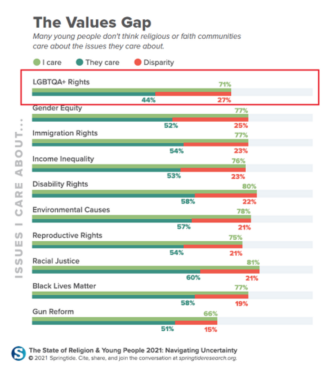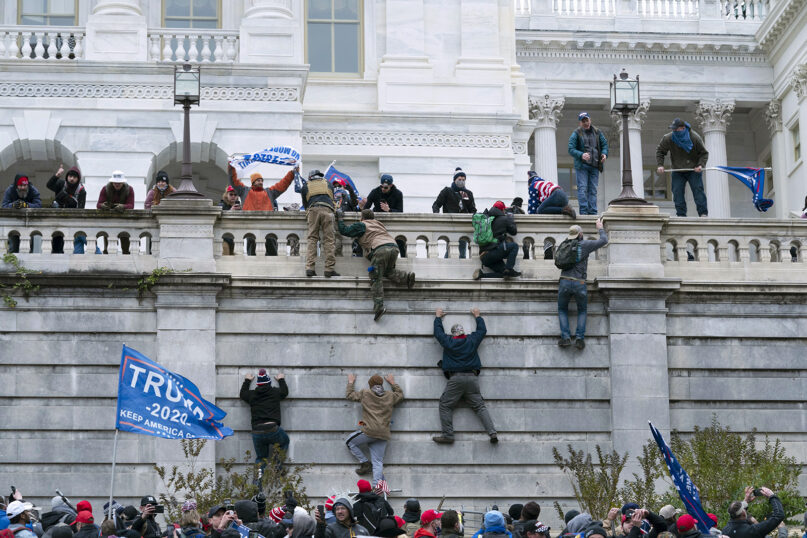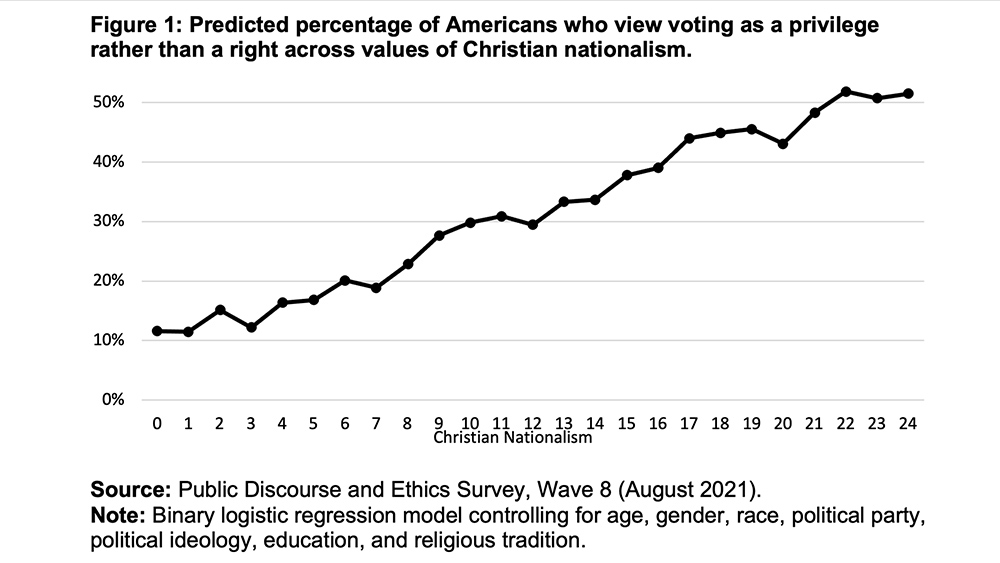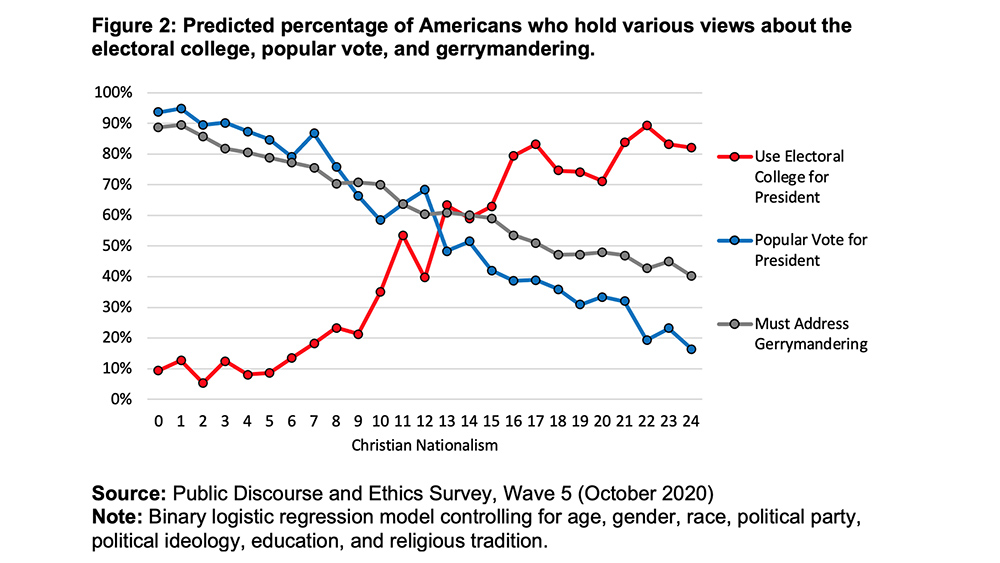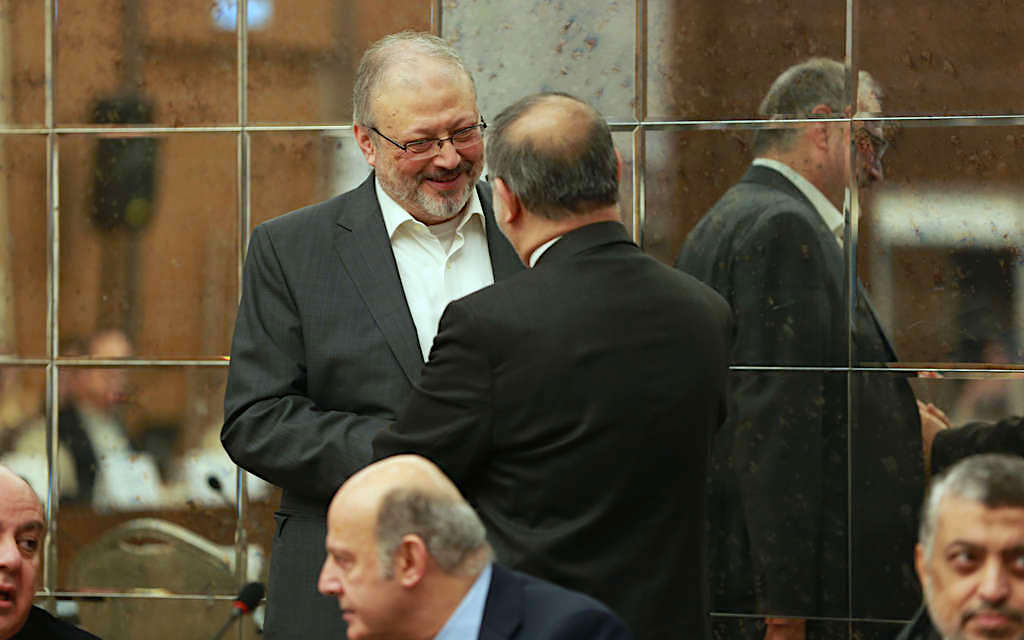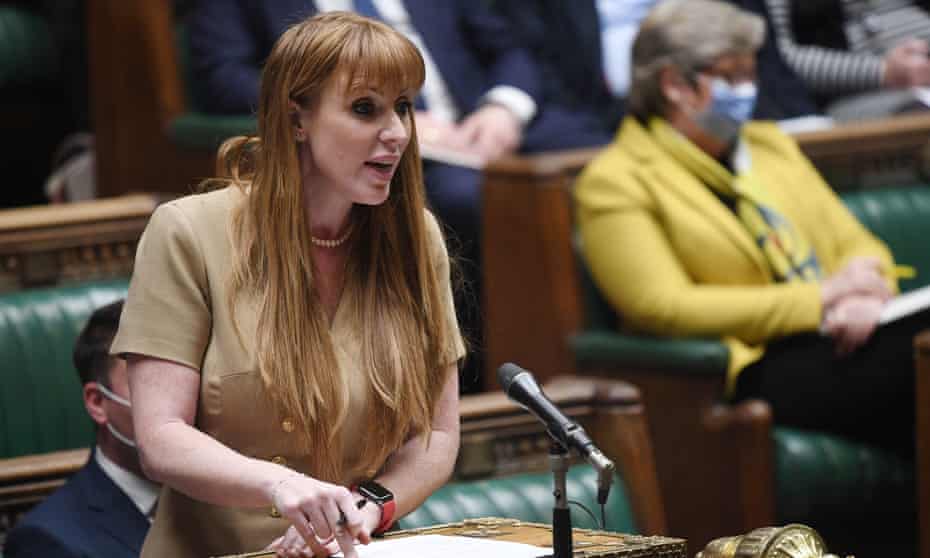Deconstruction is a valid Christian practice. Ask Martin Luther.
Deconstruction has long been seen as a healthy expression of Christian faithfulness.
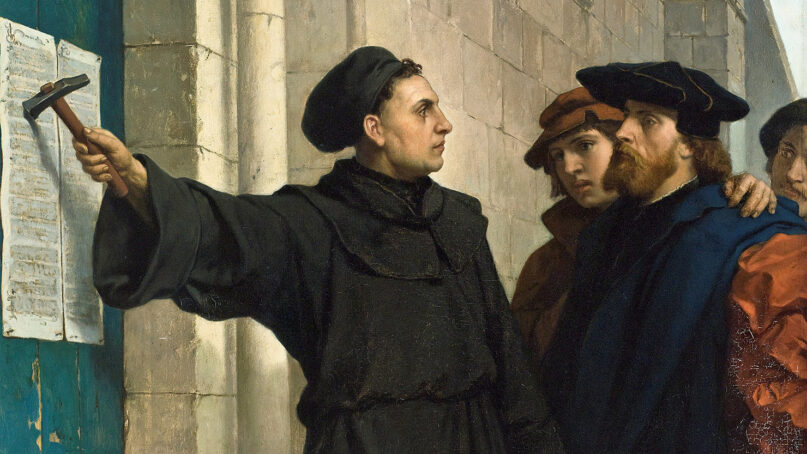
Martin Luther posting his 95 theses in 1517, painted by Ferdinand Pauwels in 1872.
Image via Wikimedia/Creative Commons
January 5, 2022
By Andre Henry
(RNS) — I wonder what Pope Leo X would’ve tweeted about the Reformation, had Twitter existed in the 16th century. Would he accuse John Calvin of being on a desperate search for street cred? Would he reduce Luther’s 95 critiques of the papacy to “church hurt”?
Such are the epithets Christian leaders today are using against the bogeyman known as “deconstruction.” A buzzword in Christian circles, the term serves as a catchall for the many ways Christians are interrogating, reevaluating and often shedding Christian doctrines, values and practices they find outdated, problematic or just plain harmful.
Those who dismiss deconstruction as “a fancy word for doubt” or demonize it as heresy or apostasy are making a crucial error: Deconstruction has always been part of Christian practice and has been seen through history as a healthy expression of Christian faithfulness.
Parroting the Reformation era slogan sola scriptura (“Scripture alone”), deconstruction’s critics suggest that the Bible is sufficient to provide guidance, not just in matters of faith, but even to remedy social evils that our readings of those very Scriptures have been essential in creating, such as systemic racism.
RELATED: Philip Yancey on the blessing of deconstruction
But the Christian Bible itself contains some of the earliest cases we have of deconstruction. One potent example comes from the Book of Acts, in which the apostle Peter breaks a religious taboo to visit a Roman centurion named Cornelius. “It is against our law for a Jew to associate with or visit a Gentile. But God has shown me that I should not call anyone impure or unclean,” Peter confessed to Cornelius upon his arrival.
The apostle is referring to a vision from God he experienced the previous day, in which he saw a cloth laden with all kinds of animals deemed unclean in the Hebrew Bible. When a heavenly voice told him to eat from the spread of forbidden animals, Peter refused, until the voice admonished Peter, “Do not call anything impure that God has made clean.”
Peter was following Scripture and keeping tradition to the best of his knowledge, but God gave him new information that demanded he reevaluate what those texts and traditions mean, and what faithfulness to God looked liked in his new context. The scene demonstrates that Scripture and tradition are at times insufficient resources to determine what faithfulness to God looks like.
Before the Reformation, Christians relied on church councils, and eventually the authority of bishops and popes, to clarify matters of doctrine and practice. Even after the schism, some Protestants recognized the need for more tools to define orthodoxy. Methodism uses a theological concept called the “Wesleyan quadrilateral,” in which Scripture is the basis for authentic Christian practice, but only in concert with tradition, reason and personal experience.

Photo by CongerDesign/Pixabay/Creative Commons
Indeed, the notion of sola scriptura arises from the greatest deconstruction movements in church history: The reformers called out the church of their day, interrogated and rejected papal authority, wrestled with the nature of the sacraments and reevaluated the place of Scripture in the life of the Christian.
Luther’s case in particular illustrates where the motivation to deconstruct often comes from. A devout biblical translator, he felt that the ecclesial practices of his time were deeply incongruent with the faith he discerned in the pages of Scripture. He called for reform because he took the text and the faith seriously. Had the religious authorities listened to him, Luther might have died a Catholic. Instead, they pressured him to recant and excommunicated him when he wouldn’t.
The Protestant reformers aren’t my heroes, but I relate to this part of their stories. I, too, was once a devout student of theology, poring over the Scriptures in the privacy of my bedroom as a boy, my dorm room as a college student and my apartment as a New York City minister.
So while deconstruction opponents rail against critical race theory, CRT scholar Kimberle Crenshaw didn’t teach me that God cares about social justice; the Book of Exodus did. God heard the cries of a stigmatized and subjugated people in the brickyards of ancient Egypt and rescued them.
The psalms reiterated that lesson when they envision God admonishing Israelite leaders to “defend the weak and the fatherless; uphold the cause of the poor and the oppressed. Rescue the weak and the needy; deliver them from the hand of the wicked.”
The prophets taught me the same lesson when Amos announces on God’s behalf, “Away with the noise of your songs! I will not listen to the music of your harps. But let justice roll on like a river, righteousness like a never-failing stream!”
Jesus taught me that God cares about social justice when he told stories like the one about the good Samaritan or when he told religious leaders that giving to the poor is like giving to Jesus himself. The apostle John taught me this when he presented a vision of God smashing the Roman empire to bits as angels shout “Hallelujah.”
So when recent anti-racist movements made it clear that the violence of chattel slavery has found an afterlife in America’s criminal legal system, I joined the protests and raised my voice against it — not just as an act of self-preservation, but as an act of Christian faithfulness.
I was surprised and disillusioned to see the level of Christian apathy and antipathy in response to the movement for Black lives: to be told that social justice isn’t part of the gospel. Worse, I was demoralized to witness the overwhelming evangelical support for Donald Trump, a candidate praised by the nation’s most overt white nationalists. I tried to reason with my evangelical siblings, until it became clear that the institutions were not likely to change. Had they listened, I might still be an evangelical Christian today.
While I’m thankful for Jemar Tisby’s work, I didn’t need to read his book “The Color of Compromise” to come to the conclusion that Christianity, as understood and articulated by many white Americans, could never be the cure for systemic racism. Those who stole Indigenous land and for centuries killed to oppose Black freedom often did so with the Bible in hand.
Deconstruction is the only logical way for victims of Christian violence to work out liberative Christian traditions of their own. Otherwise, it’s impossible to reconcile the blood-soaked history of Christianity with a healthy and liberating spirituality.
RELATED: With this much rot, there’s no choice but to deconstruct
Despite its urge to demonize deconstruction, the church is to be blamed for losing so many of the faithful. Christian leaders who claim to take Scripture too seriously to abide deconstruction should heed the apostle Paul’s words: “God’s name is blasphemed among the Gentiles because of you.” Christian churches have long participated directly in systems that have harmed and continue to harm millions of marginalized people. They continue to refuse to confess or repent of these sins or to champion the oppressed.
This is why the faith is losing legitimacy. The Christianity preached by the likes of John MacArthur, Josh Buice, Albert Mohler, Mark Driscoll, Matt Chandler and other prominent white pastors has been weighed and found wanting.
Their attempts to get us to stop thinking critically about the sins and shortcomings of their institutions only confirm that something is deeply wrong. As a theology professor of mine once said, “A faith that can’t be tested can’t be trusted.”
January 5, 2022
By Andre Henry
(RNS) — I wonder what Pope Leo X would’ve tweeted about the Reformation, had Twitter existed in the 16th century. Would he accuse John Calvin of being on a desperate search for street cred? Would he reduce Luther’s 95 critiques of the papacy to “church hurt”?
Such are the epithets Christian leaders today are using against the bogeyman known as “deconstruction.” A buzzword in Christian circles, the term serves as a catchall for the many ways Christians are interrogating, reevaluating and often shedding Christian doctrines, values and practices they find outdated, problematic or just plain harmful.
Those who dismiss deconstruction as “a fancy word for doubt” or demonize it as heresy or apostasy are making a crucial error: Deconstruction has always been part of Christian practice and has been seen through history as a healthy expression of Christian faithfulness.
Parroting the Reformation era slogan sola scriptura (“Scripture alone”), deconstruction’s critics suggest that the Bible is sufficient to provide guidance, not just in matters of faith, but even to remedy social evils that our readings of those very Scriptures have been essential in creating, such as systemic racism.
RELATED: Philip Yancey on the blessing of deconstruction
But the Christian Bible itself contains some of the earliest cases we have of deconstruction. One potent example comes from the Book of Acts, in which the apostle Peter breaks a religious taboo to visit a Roman centurion named Cornelius. “It is against our law for a Jew to associate with or visit a Gentile. But God has shown me that I should not call anyone impure or unclean,” Peter confessed to Cornelius upon his arrival.
The apostle is referring to a vision from God he experienced the previous day, in which he saw a cloth laden with all kinds of animals deemed unclean in the Hebrew Bible. When a heavenly voice told him to eat from the spread of forbidden animals, Peter refused, until the voice admonished Peter, “Do not call anything impure that God has made clean.”
Peter was following Scripture and keeping tradition to the best of his knowledge, but God gave him new information that demanded he reevaluate what those texts and traditions mean, and what faithfulness to God looked liked in his new context. The scene demonstrates that Scripture and tradition are at times insufficient resources to determine what faithfulness to God looks like.
Before the Reformation, Christians relied on church councils, and eventually the authority of bishops and popes, to clarify matters of doctrine and practice. Even after the schism, some Protestants recognized the need for more tools to define orthodoxy. Methodism uses a theological concept called the “Wesleyan quadrilateral,” in which Scripture is the basis for authentic Christian practice, but only in concert with tradition, reason and personal experience.

Photo by CongerDesign/Pixabay/Creative Commons
Indeed, the notion of sola scriptura arises from the greatest deconstruction movements in church history: The reformers called out the church of their day, interrogated and rejected papal authority, wrestled with the nature of the sacraments and reevaluated the place of Scripture in the life of the Christian.
Luther’s case in particular illustrates where the motivation to deconstruct often comes from. A devout biblical translator, he felt that the ecclesial practices of his time were deeply incongruent with the faith he discerned in the pages of Scripture. He called for reform because he took the text and the faith seriously. Had the religious authorities listened to him, Luther might have died a Catholic. Instead, they pressured him to recant and excommunicated him when he wouldn’t.
The Protestant reformers aren’t my heroes, but I relate to this part of their stories. I, too, was once a devout student of theology, poring over the Scriptures in the privacy of my bedroom as a boy, my dorm room as a college student and my apartment as a New York City minister.
So while deconstruction opponents rail against critical race theory, CRT scholar Kimberle Crenshaw didn’t teach me that God cares about social justice; the Book of Exodus did. God heard the cries of a stigmatized and subjugated people in the brickyards of ancient Egypt and rescued them.
The psalms reiterated that lesson when they envision God admonishing Israelite leaders to “defend the weak and the fatherless; uphold the cause of the poor and the oppressed. Rescue the weak and the needy; deliver them from the hand of the wicked.”
The prophets taught me the same lesson when Amos announces on God’s behalf, “Away with the noise of your songs! I will not listen to the music of your harps. But let justice roll on like a river, righteousness like a never-failing stream!”
Jesus taught me that God cares about social justice when he told stories like the one about the good Samaritan or when he told religious leaders that giving to the poor is like giving to Jesus himself. The apostle John taught me this when he presented a vision of God smashing the Roman empire to bits as angels shout “Hallelujah.”
So when recent anti-racist movements made it clear that the violence of chattel slavery has found an afterlife in America’s criminal legal system, I joined the protests and raised my voice against it — not just as an act of self-preservation, but as an act of Christian faithfulness.
I was surprised and disillusioned to see the level of Christian apathy and antipathy in response to the movement for Black lives: to be told that social justice isn’t part of the gospel. Worse, I was demoralized to witness the overwhelming evangelical support for Donald Trump, a candidate praised by the nation’s most overt white nationalists. I tried to reason with my evangelical siblings, until it became clear that the institutions were not likely to change. Had they listened, I might still be an evangelical Christian today.
While I’m thankful for Jemar Tisby’s work, I didn’t need to read his book “The Color of Compromise” to come to the conclusion that Christianity, as understood and articulated by many white Americans, could never be the cure for systemic racism. Those who stole Indigenous land and for centuries killed to oppose Black freedom often did so with the Bible in hand.
Deconstruction is the only logical way for victims of Christian violence to work out liberative Christian traditions of their own. Otherwise, it’s impossible to reconcile the blood-soaked history of Christianity with a healthy and liberating spirituality.
RELATED: With this much rot, there’s no choice but to deconstruct
Despite its urge to demonize deconstruction, the church is to be blamed for losing so many of the faithful. Christian leaders who claim to take Scripture too seriously to abide deconstruction should heed the apostle Paul’s words: “God’s name is blasphemed among the Gentiles because of you.” Christian churches have long participated directly in systems that have harmed and continue to harm millions of marginalized people. They continue to refuse to confess or repent of these sins or to champion the oppressed.
This is why the faith is losing legitimacy. The Christianity preached by the likes of John MacArthur, Josh Buice, Albert Mohler, Mark Driscoll, Matt Chandler and other prominent white pastors has been weighed and found wanting.
Their attempts to get us to stop thinking critically about the sins and shortcomings of their institutions only confirm that something is deeply wrong. As a theology professor of mine once said, “A faith that can’t be tested can’t be trusted.”



